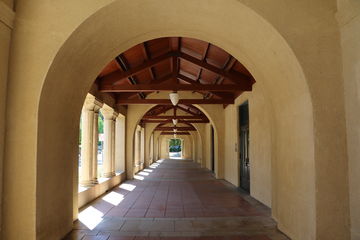A Tale of Two Cities: The Fate of Delhi as UNESCO World Heritage

Stanford Humanities Center
Stanford Department of Anthropology
A Tale of Two Cities: The Fate of Delhi as UNESCO World Heritage
with Prof. Lynn Meskell (Penn Integrates Knowledge Professor, Department of Anthropology and the Weitzman School of Design, University of Pennsylvania)
As a part of the workshop series 'Neoliberal Heritagescapes: Culture & Urbanism in Post-conflict Cities'
OPEN TO ALL. PLEASE NOTE THIS EVENT WILL NOT BE RECORDED.
About the talk:
In June 2015, a nomination dossier entitled “Delhi’s Imperial Capital Cities,” combining the two imperial capitals of Shahjahanabad and New Delhi, was proposed for the UNESCO World Heritage List. In this session, Meskell traces the trajectory of the dossier and events surrounding its withdrawal to reveal the political imbrications of urban conservation, international institutions, neoliberal governance, and colonial histories. She situates Delhi’s heritage within the ambit of neoliberal governance that recalibrates and promotes urban heritage preservation, while similarly encouraging development and economic growth. The episode reveals tensions in this specific political moment over contemporary perceptions of imperial occupation and “foreign” empires, which plagued the dossier from the outset and continue to reverberate in India today.
About the Speaker:
Lynn Meskell is Richard D. Green Professor of Anthropology in the School of Arts and Sciences, Professor in the Graduate Program in Historic Preservation, and curator in the Middle East and Asia sections at the Penn Museum. She is currently A.D. White Professor-at-Large at Cornell University (2019–2025). She is the founding editor of the Journal of Social Archaeology. Meskell has broad theoretical interests including socio-politics, archaeological ethics, global heritage, materiality, as well as feminist and postcolonial theory. Over the last decade, Meskell has conducted an institutional ethnography of UNESCO World Heritage, tracing the politics of governance and sovereignty and the subsequent implications for multilateral diplomacy, international conservation, and heritage rights. Employing archival and ethnographic analysis, her award-winning book A Future in Ruins: UNESCO, World Heritage, and the Dream of Peace, reveals UNESCO’s early forays into a one-world archaeology and its later commitments to global heritage. Building on this research, she is currently examining the entwined histories of colonialism, internationalism, espionage, and archaeology in the Middle East coupled with a new largescale survey project in Syria and Iraq to assess public opinion on heritage destruction and reconstruction. Other recent fieldwork explores monumental regimes of research and preservation around World Heritage sites in India and how diverse actors and agencies address the needs of living communities.